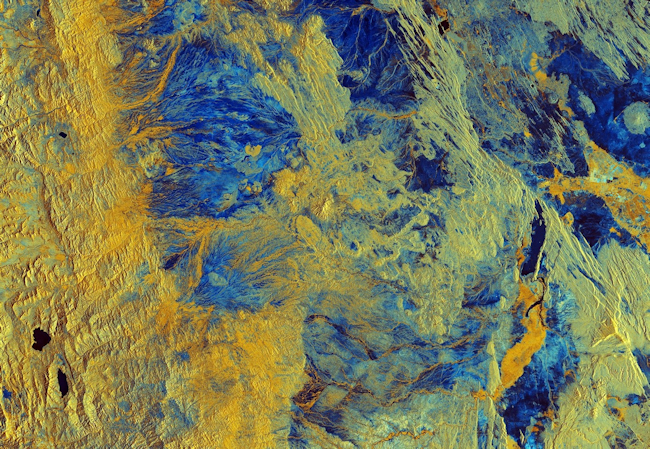1st EMSAfrica Summer School on the Basics and Applications of Synthetic Aperture Radar (SAR) Remote Sensing for Environmental Monitoring

This course will teach the basics and applications of synthetic aperture radar (SAR) remote sensing for environmental monitoring. It will feature a mixture of theory lessons and corresponding practical tutorials. The latter will particularly focus on Sentinel-1 time series data (backscatter intensities) and their analysis with open source software (e.g., ESA’s SNAP toolbox, SARbian OS).
The summer school will use a flipped classroom approach for teaching. That is, each participant is required to complete the EO college "Echoes in Space" massive open online course (www.eo-college.org) before the actual 4-day hands-on training takes place. In this way, attendees will already have some basic knowledge about SAR remote sensing when the live course starts, making its implementation much more efficient. After the training, each participant will receive a certificate of achievement for successfully completing the 1st EMSAfrica Summer School on Synthetic Aperture Radar (SAR) Remote Sensing.
Important note
Attendees of the summer school are required to bring their own laptops and external hard drives in order to be able to take part in the practical tutorials. The following system parameters are recommended for the hands-on exercises:
- Processors: 4 cores (64-bit)
- RAM: 8 GB
- GPU: 128 MB
- Disc space: 30 GB
Target group
The course is generally open to anyone, from university students and early-career researchers to people employed by government agencies or private companies. However, (southern African) people working in academia (i.e., from undergraduate students to PostDocs) are especially encouraged to participate and they can also apply for a slot funded by the BMBF to cover costs of travel and accommodation. An overall number of ten fully funded slots is available (see “Registration”).

Date
23rd - 26th September, 2019
The course will be repeated in 2020 or 2021 (TBD).

Location
WITS Rural Facility, University of the Witwatersrand, Acornhoek, South Africa
https://www.wits.ac.za/campus-life/arts-and-culture/wits-rural-facility/

Confirmed teachers
Theory lessons: Prof. Dr. Iain Woodhouse (University of Edinburgh, UK), Prof. Dr. Christiane Schmullius (University of Jena, Germany)
Practical tutorials: Dr. Clémence Dubois (University of Jena, Germany), Dr. Marcel Urban (University of Jena, Germany), Dr. Christian Berger (University of Jena, Germany)

Fees and Funding
Thanks to funding provided by the German Ministry of Education and Research (BMBF) via the German Aerospace Centre (PT-DLR), there are no course fees. Furthermore, ten funded slots are available for southern African participants. Travel and accommodation costs will be fully covered for the funded participants.
To apply for a funded slot, please include the documents listed under "Application" and also a letter of recommendation from your supervisor or a senior academic. The letter of recommendation should contain justifications for the funding needs of the individual applicants.
In case there are more applicants than funded slots, the selection of the funded participants will be made based on the background and motivation of the candidates. The selection panel will consist of the course teachers and some of our South African project partners.
Note that you can also apply for a non-funded slot. In this case you are expected to pay for your own travel and accommodation.

Application
Application period for the 2019 course has been closed - all candidates will be notified in due time.

Materials
in preparation

Contact
Dr Christian Berger (christian.berger@uni-jena.de)
Department for Earth Observation, Friedrich-Schiller University Jena, Germany

